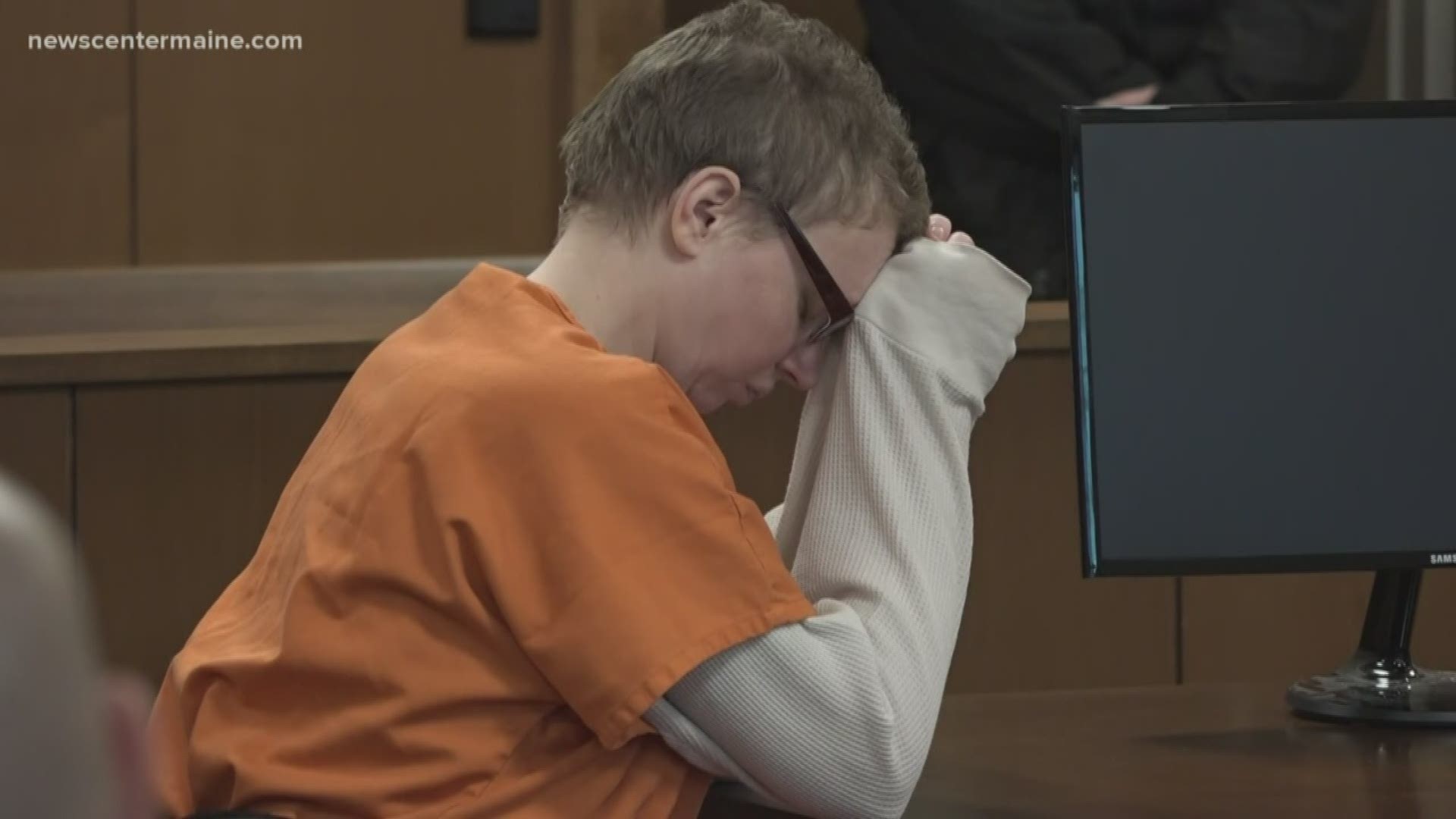BELFAST, Maine — Jurors in the murder trial of Sharon Carrillo heard on Monday heard audiotapes of interviews state police conducted with Carrillo shortly after the death of her 10-year-old daughter, Marissa Kennedy.
Carrillo and her husband, Julio Carrillo, were charged with depraved indifference murder of the child, who died in February 2018.
Kennedy was found beaten to death at a home in Stockton Springs after being beaten for months by her mother and stepfather, who tried to make her death look like an accident, prosecutors have said.
Julio Carrillo pleaded guilty to murder and was sentenced to 55 years in jail.
Sharon's defense attorney, Chris MacLean, told NEWS CENTER Maine that because her IQ level is in the third or fifth percentile she may not understand some of the complex dealings of a murder trial.
Last week, Justice Robert E. Murray ruled that Sharon Carrillo was competent to stand trial.
Opening arguments were heard on Friday.
Monday morning, Assistant Attorney General Donald Macomber, who is prosecuting the case, questioned social worker Suzanne Webber about her work with the family.
Monday afternoon, jurors heard an audio recording of an interview by Maine State Police Detective Jason Andrews immediately after Kennedy's death.
During the interview, Carrillo told Andrews that Kennedy had become "controlled by her grandparents." She said she had been taking several medications because she had not been eating much "making herself throw up," and "pinching herself and hurting herself."
She said Acadia Hospital took Kennedy off medication she really needed "and this is what happened." She said her daughter had been violent with her, with her husband, and that she worried that she would injure two younger children.
Carrillo said the day of her death, Kennedy "just got out of control." She said she told Julio Carrillo she was going downstairs to watch TV while the couple and their other children remained upstairs.
"We were trusting her to not do anything too crazy," Carrillo said. "But then my husband went down two or three hours later and found her in the furnace room."
She continued, sometime inaudibly, that when Julio Carrillo brought Kennedy upstairs, she was breathing erratically and then began spitting up blood.
Carrillo said her daughter had several bruises on her body, and that she and her husband changed her daughter's shirt because it was "getting all full of blood."
Carrillo, in a black pant suit and now with close-cropped red hair, wiped away tears with a tissue as the interview played.
Carrillo said she spoke to her father on the phone the day of the death about complaints by neighbors in the condominium complex about "yelling and screaming." She said the screaming was either her daughter, "out of control," or Carrillo herself.
Sharon Carrillo said she had been prescribed Zoloft for anger.
Sharon said she is sometimes "triggered" by incidents. She said she has never hit one of her children -- although earlier in the interview she said the two would "spank them on on the butt" occasionally -- but said she had struck her husband.
She said her husband called the police during one of her episodes, in which she was out of control and throwing herself on the floor. She said the episodes were the result of a head injury suffered when she worked at Wal-Mart.
Asked repeatedly what she thinks happened to her daughter, Sharon Carrillo answered, "I think she thought, 'It's a good time to maybe hurt myself maybe way more than I used to.'"
During a break on Monday, defense attorney Chris MacLean said the state's first witness, social worker Suzanne Webber, painted "a disturbing picture" of what was happening in the Carrillo household.
"It's a picture of Julio Carrillo running the show, Julio Carrillo making up stories and providing information and doing all the talking and Marissa and Sharon kind of looking sullen and quiet and not answering questions from social workers," MacLean said.
"Everything this witness was seeing in household should have sent out red flags that there was domestic violence and abuse going on in the household," MacLean said. "She noted that Marissa didn’t disclose any child abuse at all, but of course, that doesn’t mean child abuse wasn’t happening. Marissa died of child abuse. Sharon Carrillo was being subjected to domestic violence."

